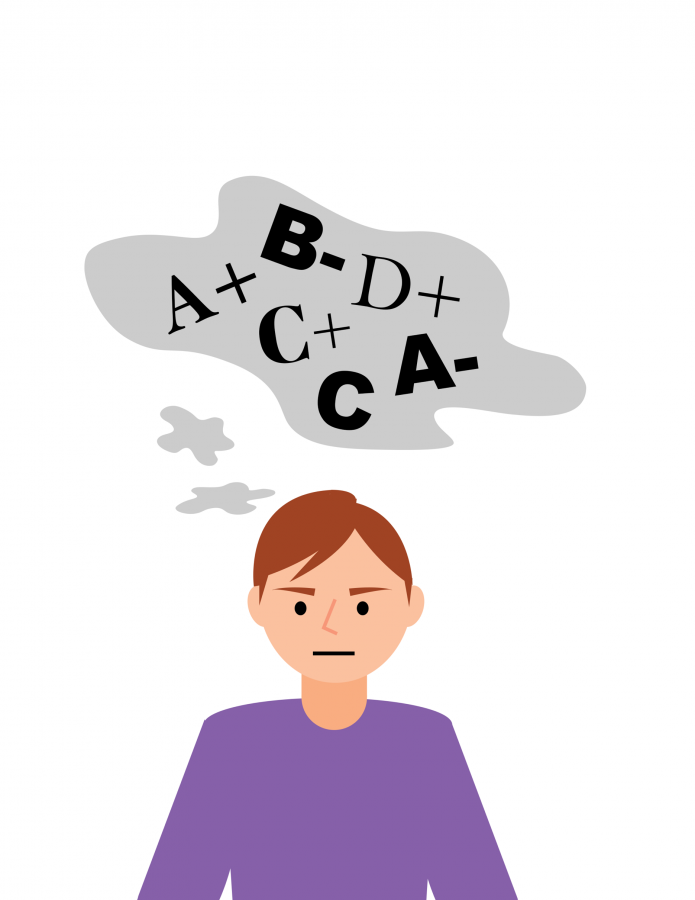Students should remain civil rather than cutthroat following the release of semester grades.
Harvard-Westlake is a community that thrives thanks to its academically rigorous environment. After all, our Honor Code, the doctrine establishing Harvard-Westlake’s fundamental values, states that our community is “united by the joyful pursuit of educational excellence.” Although some level of competition is necessary to attain a challenging academic environment, competitive spirit can too easily become cutthroat when students place too much value on their Grade Point Average.
Although grades are often discussed in innocent ways, such as students exchanging scores they received on a recent test to understand the way a teacher distributed points, conversations of this sort can often take a malicious turn. For example, I’ve overheard some of my companions boasting to others about perfect scores they received in a shared class and others discussing how their scores on standardized assessments surely qualified them for certain scholarship programs.
This cutthroat competition is most devastating at the start of the second semester, which, for many students, signals that the end of the school year is approaching.
As a result, students establish a needlessly stressful environment for themselves and for their peers. The goal of rising above the competition obscures the drive for a meaningful learning experience. Although a large aspect of this results-oriented culture is the product of a grueling college admissions process that is notorious for focusing exclusively on GPA and intense market forces demanding top-notch workers, this issue gets perpetuated at an individual level when students take it upon themselves to outrank their classmates, turning their peers into opponents.
This is not to say that students should not take pride in having success in their courses. Putting personal investment into one’s work is a necessary aspect of a pursuit for academic success. Rather, my argument is that students ought to engage in healthy, collaborative processes to help us all reach educational excellence instead of undermining each other.
Additionally, bragging about grades might invalidate struggles other students may be facing. Although grades are a significant part of one’s life, for other students, mental health, physical health, identity struggles or family problems may take precedence over the grade one receives in a class. To boast about grades or judge someone for not maintaining a perfect transcript glosses over these issues, when, in reality, they are meaningful concerns in the life of a high school student.
Another important consideration is the overall arbitrary nature of letter grades themselves. Although the letter system doesn’t have an equally effective alternative, hence its widespread use, it is incapable of placing a label on other aspects of a student’s life, such as political awareness, artistic talent or athletic capability. Thus, placing heightened value on academic endeavors fails to account for the totality of one’s high school experience.
Creating a solution that addresses the entirety of the problem is complicated since, as described above, a number of structural factors influence these cultural problems. Given these problems, prioritizing collaboration over competition can help mitigate their impact. Although it can be easy to feel better about oneself after criticizing others for their supposed academic shortcomings, a healthier response would be to reserve judgment, since that person may be fighting other battles, and work with rather than against the other person to learn as much as possible. This is essential in ensuring that our community is united rather than fragmented in the joyful pursuit of educational excellence.
Categories:
Don’t parade your grades
February 2, 2019
More to Discover


































